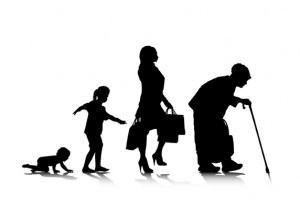News You Can Use
Posted on April 1, 2012 by bob in NewsUCanUse
 Love — Good for the Heart
Love — Good for the Heart
Being involved in a healthy, loving relationship is good for the heart, says Vanderbilt Heart and Vascular Institute cardiologist Julie Damp, M.D.
“There are a couple of different theories behind why that might be,” Damp said. People who are married or who are in close, healthy relationships tend to be less likely to smoke, are more physically active and are more likely to have a well-developed social structure, she said. They are also more likely to have lower levels of stress and anxiety in their day-to-day lives.
Weight Training Improves Parkinson’s Symptoms
New research suggests weight training for two years significantly improves the motor symptoms of Parkinson’s disease compared to other forms of exercise such as stretching and balance. The clinical trial, which compared two forms of exercise for Parkinson’s disease, will be presented at the American Academy of Neurology’s Annual Meeting this month.
 Overeating May Double Risk of Memory Loss
Overeating May Double Risk of Memory Loss
New research suggests that consuming between 2,100 and 6,000 calories per day may double the risk of memory loss, or mild cognitive impairment (MCI), among people age 70 and older. MCI is the stage between normal memory loss that comes with aging and early Alzheimer’s disease.
The odds of having MCI more than doubled for those in the highest calorie-consuming group compared to those in the lowest calorie-consuming group. The results were the same after adjusting for history of stroke, diabetes, amount of education, and other factors that can affect risk of memory loss. The study will be presented at this month’s meeting of the American Academy of Neurology.
Twinkle, Twinkle Kidney Stone: With a Push You Could Be Gone
Just the mention of kidney stones can cause a person to cringe. They are often painful and sometimes difficult to remove, and 10 percent of the population will suffer from them. In space, the risk of developing kidney stones is exacerbated due to environmental conditions.
The health risk is compounded by the fact that resource limitations and distance from Earth could restrict treatment options. Scientists with the National Space Biomedical Research Institute (NSBRI) are developing an ultrasound technology that could overcome some medical care challenges associated with kidney stone treatment.
The new technology detects stones with advanced ultrasound imaging based on a process called “Twinkling Artifact” and provides treatment by “pushing” the stone with focused ultrasound. This technology could not only be beneficial for health care in space, but could also alter the treatment of kidney stones on Earth.
 Walking Speed and Grip in Middle Age May Predict Dementia and Stroke Risk
Walking Speed and Grip in Middle Age May Predict Dementia and Stroke Risk
Simple tests such as walking speed and hand grip strength may help doctors determine how likely it is a middle-aged person will develop dementia or stroke. That’s according to new research to be presented this month at the annual meeting of the American Academy of Neurology.
The study found people with a slower walking speed in middle age were one-and-a-half times more likely to develop dementia compared to people with faster walking speed. Stronger hand grip strength was associated with a 42% lower risk of stroke or transient ischemic attack (TIA) in people over age 65 compared to those with weaker hand grip strength. This was not the case, however, for people in the study under age 65.
Researchers also found that slower walking speed was associated with lower total cerebral brain volume and poorer performance on memory, language and decision-making tests.
Stronger hand grip strength was associated with larger total cerebral brain volume as well as better performance on cognitive tests asking people to identify similarities among objects.
You Really Can Die From a Broken Heart
A person’s risk of suffering a heart attack increases by approximately 21 times in the first 24 hours after losing a loved one, according to a study lead by researchers at Beth Israel Deaconess Medical Center.
The study, published in the journal Circulation, found the risk of heart attack remained eight times above normal during the first week after the death of a loved one, slowly declining, but remaining elevated for at least a month.
Researchers noted that emotional sense of the broken heart may actually lead to damage leading to a heart attack and a physical broken heart of a sort.
 The Biology of Aging
The Biology of Aging
The outward signs of aging are obvious. For instance, you notice a new wrinkle or it takes more energy to do an everyday task. But, complex changes are also happening under the surface, deep inside our cells. Biology of Aging: Research Today for a Healthier Tomorrow, a new publication from the National Institute on Aging (NIA), part of the National Institutes of Health, explores questions such as:
• What is aging?
• Living long and well: Can we do both? Are they the same?
• Is aging in our genes?
• Does stress really shorten your life?
• Can your immune system still defend you as you age?
Learn about major findings into the basic biology of aging and preview future areas of investigation. Colorful diagrams and photos help to illustrate some of the important points. No science degree required and it’s FREE.
Read the information online, download it, or order print copies: Biology of Aging: Research Today for a Healthier Tomorrow at www.nia.nih.gov/health/publication/biology-aging. Or call toll-free 1-800-222-2225.









